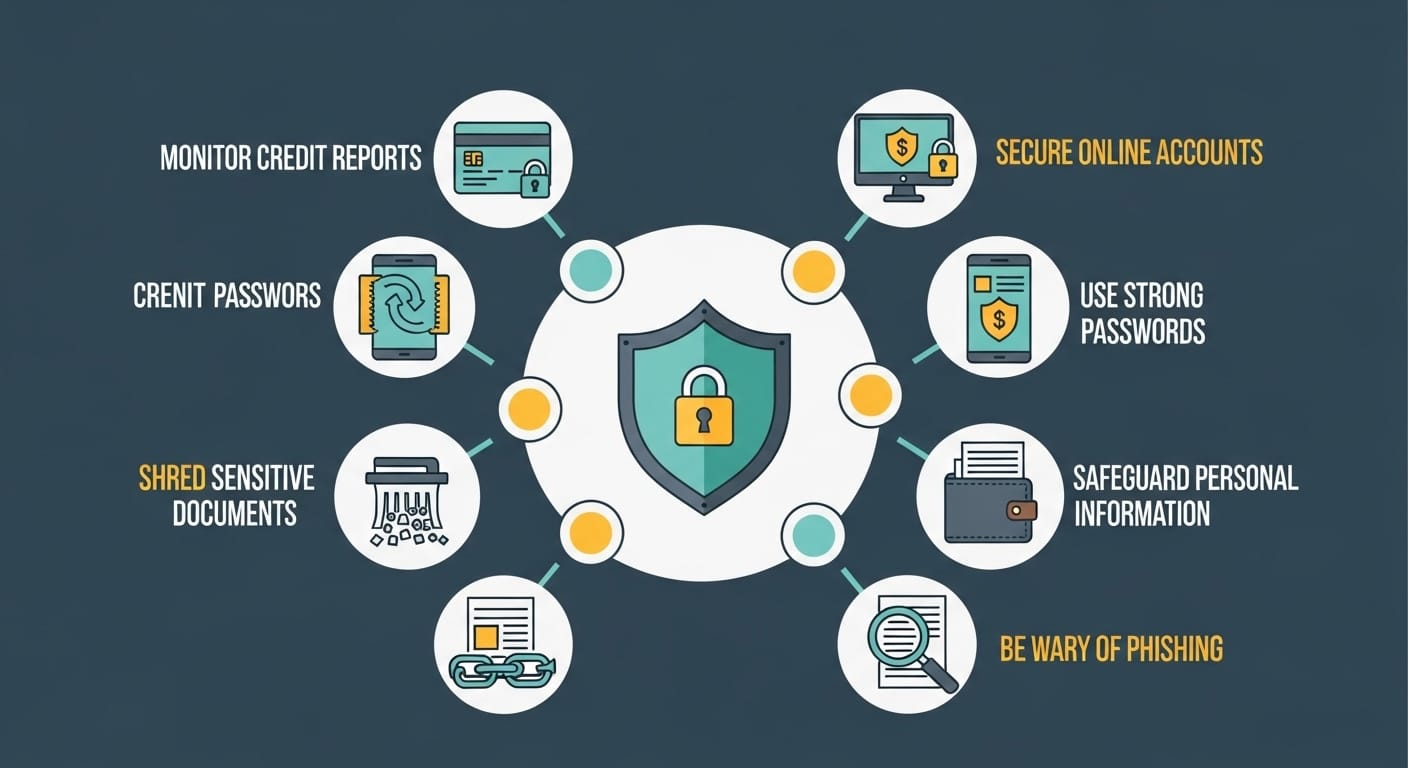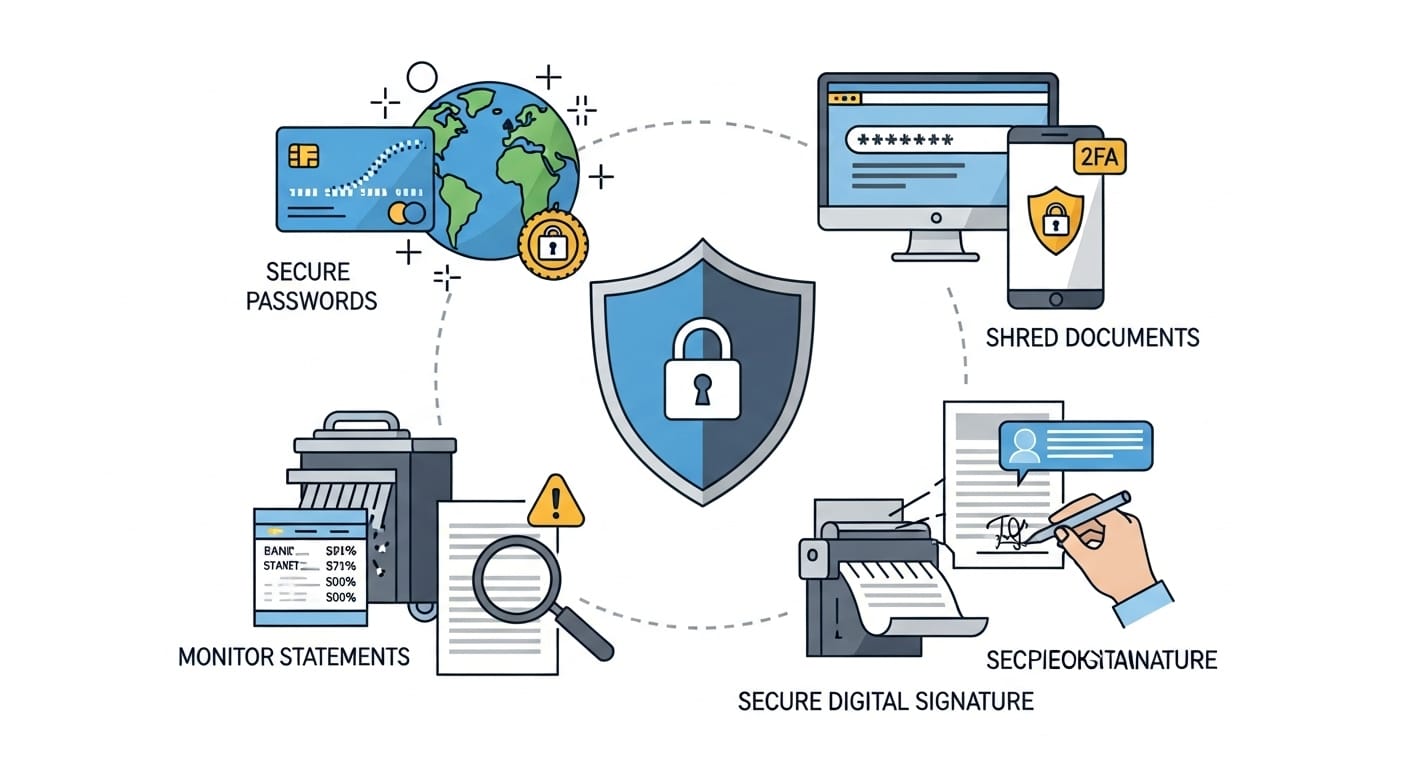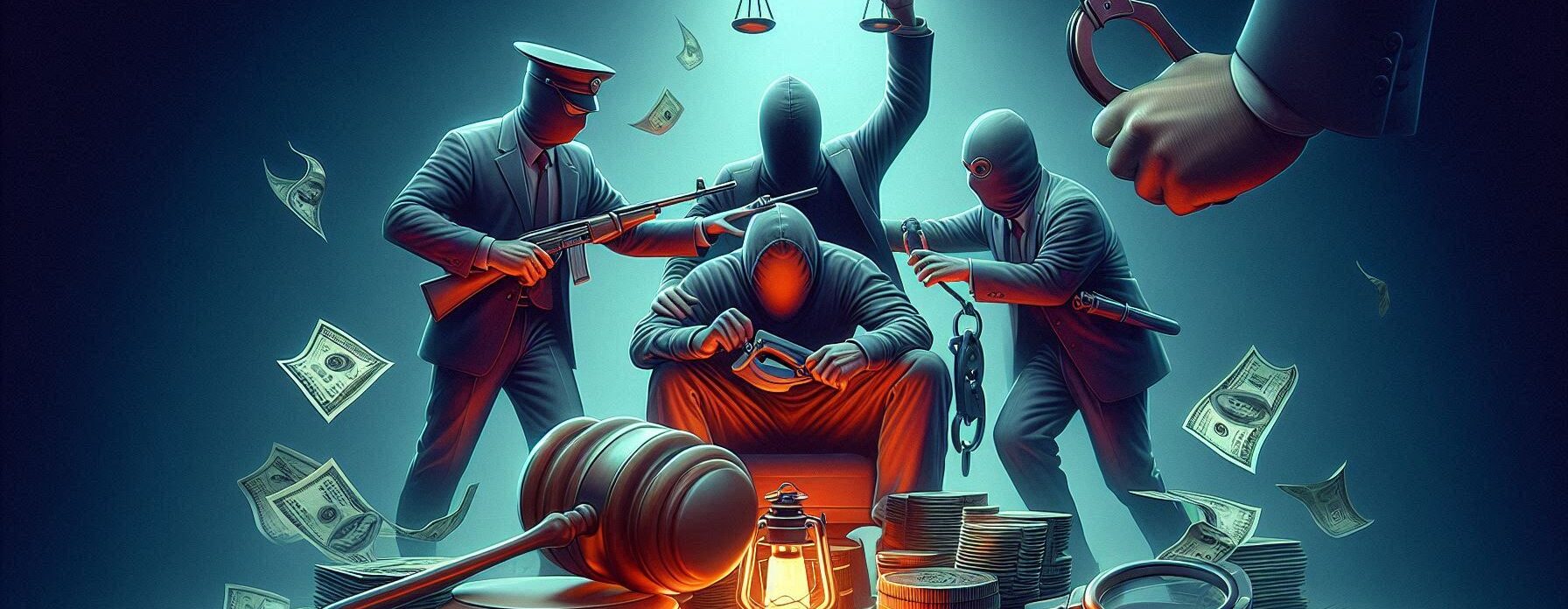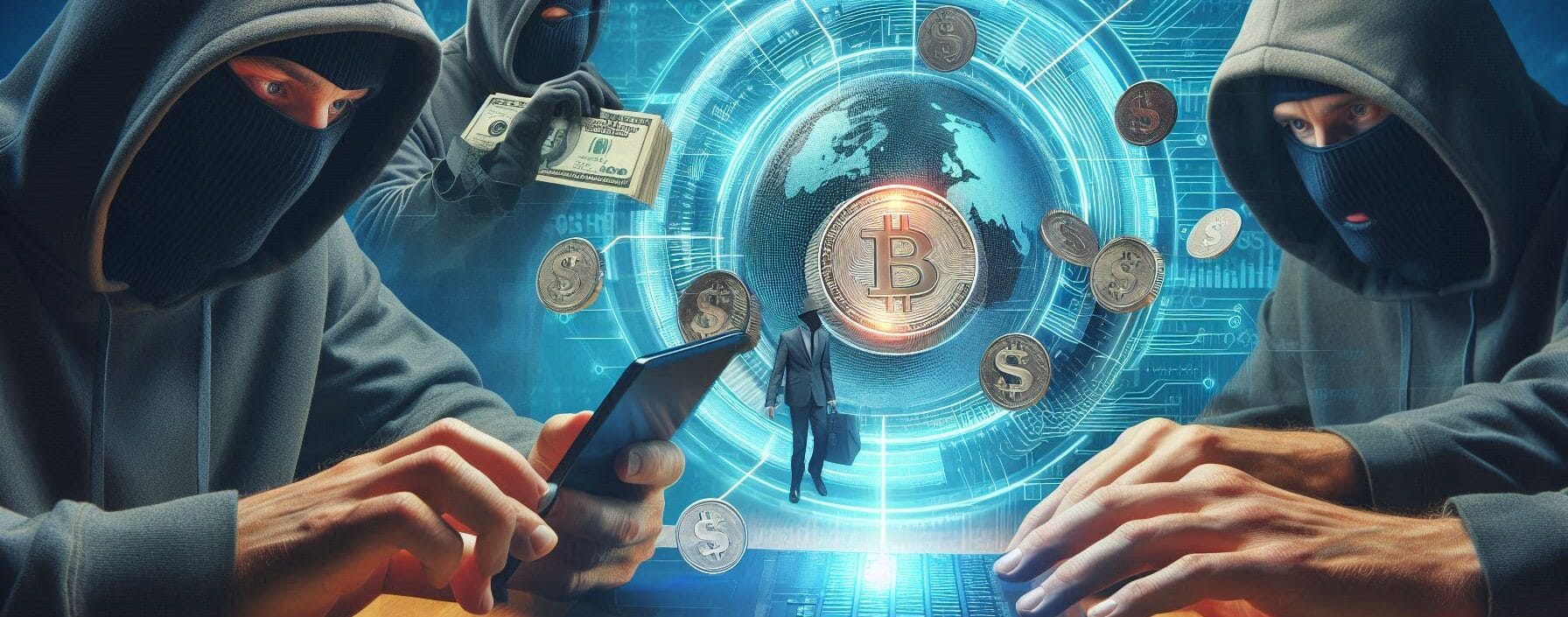It’s no secret that identity theft and fraud are lurking out there, just waiting to ruin your day—or worse, your entire financial life. I mean, you’ve worked hard for your money, right?
You’ve slaved away at that job, put in hours of overtime, and maybe even gave up a few weekends. So, what happens when some fraudster decides to swipe your identity and start shopping like it’s their birthday? You could be in a world of trouble, unless, of course, you take the right steps to protect yourself.
The good news? There are things you can do to guard your precious personal information. Let’s dive in.

Top Takeaways and Key Concepts
Protect Personal Information: Avoid sharing sensitive data online, and use a PO Box for correspondence.
Monitor Credit Regularly: Check credit reports often to spot unauthorized accounts or suspicious activity.
Use Strong, Unique Passwords: Employ complex passwords and a password manager to secure all accounts.
Enable Two-Factor Authentication: Add an extra verification step for all critical online accounts.
Be Cautious with Phishing and Public Wi-Fi: Avoid suspicious links and use a VPN on public networks.
Summary of This Article
Please Note: This post may contain affiliate links. If you click one of them, we may receive a commission at no extra cost to you. As an Amazon Associate, I earn from qualifying purchases.
The article provides practical strategies to prevent identity theft and fraud, emphasizing vigilance over personal information, credit monitoring, and strong password practices. It highlights the importance of enabling two-factor authentication, being cautious with phishing attempts, and securing devices on public Wi-Fi. Additionally, it advises shredding sensitive documents and outlines immediate steps to take if identity theft occurs, including contacting financial institutions and credit bureaus. Following these steps can significantly reduce risk and minimize potential financial damage.
Keeping Your Personal Information Close (And I Mean Really Close)

First things first: never, under any circumstances, let your personal information just wander around aimlessly on the internet.
Sure, we all want to be social media stars, but unless you’re posting pictures of your family’s beach vacation or your dog dressed as a pirate, you probably don’t need to share your full name, address, birthdate, or social security number with everyone on the internet. I know, I know—it sounds like common sense, but you’d be shocked at how many people post this stuff without thinking twice.
For example, don’t be the person who shares your address and phone number just because someone sent you a “free gift” survey. Spoiler alert: That’s not a free gift. It’s a fraudster building a catalog of your life so they can target you with scams. Also, get a PO Box for any correspondence if you can. It’s a small step that could make a big difference in keeping your private life private.
Monitoring Your Credit Like a Hawk

It’s no surprise that your credit report can be a gold mine for identity thieves. If they get their hands on your credit card information, or worse, open a new account in your name, you’ll be spending weeks—if not months—sorting out the mess. So, here’s a little secret: You need to keep an eye on your credit report as often as you check your social media accounts. Just like a cat watches a mouse, you should be vigilantly monitoring for any signs of trouble.
There are free tools out there that let you check your credit for any weird activity, like accounts you didn’t open or credit inquiries you didn’t request. Some of the big credit bureaus even let you check your credit report for free once a year. Seriously, it’s worth taking a few minutes to look things over and make sure no one is living it up on your dime.
Using Strong, Unique Passwords (Yes, “12345” Isn’t Cutting It)
If you’re still using “password123” as your go-to login, well, you might as well be sending out invitations for identity theft. Strong, unique passwords are a must if you want to keep fraudsters from gaining access to your accounts. The days of using your dog’s name or your favorite sports team are over (sorry, “Lakersfan” isn’t going to keep anyone out).
Here’s a tip: Use a password manager to generate and store your passwords. That way, you don’t have to remember them all (except the master one, which—spoiler alert—should also be super secure). Make sure you mix in letters, numbers, and special characters, and try not to repeat the same password across multiple sites. It’s like having a good lock on your front door, except this lock is virtual and harder to pick.
Beware of Phishing Scams (No, Not the Fun Kind)
We’ve all gotten that email or text from a “bank” saying they need to verify your account information. At first glance, it looks pretty legit, but then you start thinking: Wait a second, my bank never contacts me like this!
That’s because it’s a phishing scam, designed to trick you into giving up your personal details. The fraudster’s job is to make the message look as real as possible—like they’ve got all the details about your account and are just “double-checking” a few things. Don’t fall for it.
A simple rule: Never click on links in unsolicited emails or texts, and always double-check by going directly to your bank or credit card company’s website if you’re unsure. If you’ve got a gut feeling something’s off, trust it. It’s better to be safe than to hand over your identity to the digital equivalent of a con artist.
Setting Up Two-Factor Authentication (Yes, It’s Worth It)
If you want to add an extra layer of protection to your online accounts, you need to enable two-factor authentication. It sounds complicated, but it’s really not. Two-factor authentication is like having a secret handshake with your accounts. Once you’ve logged in with your password, it sends a one-time code to your phone or email. This means that even if someone has your password, they still need the code to access your account.
Two-factor authentication isn’t just for social media sites; your bank, credit card companies, and even your email provider likely offer it. Sure, it’s an extra step, but isn’t it better than finding out someone’s been using your credit card at the local mall? I think so.
Shredding Important Documents (Not Just Your Old College Essays)
It’s easy to forget about paper documents in the age of digital everything, but trust me, your paper trail can be a gold mine for identity thieves. If you’re like me, you probably have a stack of old bank statements, credit card offers, and even tax documents hanging around. And while they might seem harmless, all that information could end up in the wrong hands.
The solution? Shred it. You don’t have to go overboard, but make sure anything that has your personal information on it—especially credit card statements or old bills—gets shredded before you toss it out. I know it’s a small task, but it could save you a huge headache down the road. Just think of it as your personal line of defense against dumpster-diving fraudsters.
Being Cautious About Public Wi-Fi
Let’s be real: Public Wi-Fi is like the Wild West of the internet. It’s fast, it’s free, and it’s full of hackers looking to steal your data. Do you really want to check your bank balance while sipping a latte at the local café? Probably not. Public Wi-Fi isn’t secure, and if you log into your bank account or make purchases over an unprotected network, you’re giving hackers a free pass to your personal details.
If you must use public Wi-Fi, make sure you’re using a VPN (Virtual Private Network). It’s like putting a lock on your internet connection, keeping your personal information safe. And no, I’m not just saying that because I’m a tech geek—it’s actually a simple, smart way to protect yourself while you’re on the go.
What to Do If Your Identity Is Stolen
If the worst happens and your identity gets stolen, don’t panic. Well, try not to panic. Take a deep breath and start making calls. Contact your bank, credit card companies, and the credit bureaus right away to report any fraudulent activity. You’ll likely have to file a police report, which might sound like an inconvenience, but it’s a crucial part of the process.
From there, you can work with your financial institutions and the authorities to get things sorted out. It’s not a fun process, but the faster you act, the more likely you’ll be able to minimize the damage. And once you’ve squared things away, you can get back to living your life—minus the headache of worrying about identity theft.
Resources
Federal Trade Commission – Identity Theft Resources
https://www.consumer.ftc.gov/features/identity-theft
Identity Theft Resource Center
https://www.idtheftcenter.org/
Consumer Financial Protection Bureau – Protecting Yourself from Fraud
https://www.consumerfinance.gov/consumer-tools/fraud/
Frequently Asked Questions
What are the most common ways identity theft occurs?
Identity theft often happens through phishing scams, data breaches, stolen mail, or unsecured public Wi-Fi connections where personal information is intercepted.
How can I protect my personal information online?
Avoid oversharing personal details on social media, use a PO Box for mail, and never provide sensitive data through unsolicited emails or messages.
Why is credit monitoring important for preventing identity theft?
Regularly checking your credit reports helps detect unauthorized accounts or suspicious activity early, allowing you to act before major damage occurs.
What makes a strong password?
A strong password combines upper and lowercase letters, numbers, and special characters. Each account should have a unique password managed securely through a password manager.
How does two-factor authentication enhance security?
Two-factor authentication adds an extra verification step—like a one-time code—to protect accounts even if your password is compromised.
What should I do with old documents containing personal information?
Shred documents with sensitive data, such as bank statements or bills, before discarding them to prevent thieves from retrieving information from the trash.
What steps should I take if my identity is stolen?
Immediately contact your bank, credit card companies, and credit bureaus, file a police report, and work with financial institutions to resolve fraudulent activity.

Kevin Collier is a legal expert passionate about simplifying complex legal concepts for everyday individuals. With a focus on providing clear, practical information, he covers a wide range of topics, including rights, responsibilities, and legal procedures. Kevin aims to empower readers with the knowledge they need to navigate the legal landscape confidently, ensuring they can make informed decisions regarding their legal matters. Through insightful articles and easy-to-understand resources, he helps demystify the law, making it accessible to all.










